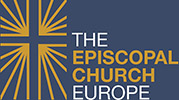CC2012-Res.1: Vision 2012
The priorities for
Resolved that this Convocation hereby affirm the Statement of Mission and the four recurring phases (Florence, October 2011), the Strategic Visioning Committee (2011-2012), the Vision 2012 consultation (Schloss Fürstenried, Munich, June 2012) and the Council of Advice (Castelfiorentino, Italy, September 2012).
BACKGROUND (to accompany the resolution)
Vision 2012 is the Convocation’s third strategic mission initiative since 1999 (Mission 2000), which called for. Among other things, the election of our Bishop in Charge, the formation of the EICS, publication of four bilingual prayer books, and growth in youth ministry. The second strategic plan, Mission 2006, worked to develop the structures of the Convocation so that we could become self-governing, in the manner of an Episcopal diocese. In 2011, the Convention of the Convocation adopted the Charter for Lifelong Christian Formation, which had been approved by General Convention 2009. Vision 2012 will guide the work of the Convocation during the next five years.
Developing Vision 2012 has been a yearlong process, guided by the Holy Spirit, and involving all parishes and congregations of the Convocation. Delegates to the 2011 Convention of the Convocation of Episcopal Churches in Europe (October 20-23) launched Vision 2012: Incarnation and Mission in Europe.
The Strategic Visioning Committee worked throughout the year to prepare us for the Vision 2012 Consultation at Schloss Fürstenried (June 8-10,2012). There, 57 deputies from around Europe talked and dreamed together, coming up with 29 possible initiatives.
Next, the Council Advice discerned over the summer.
At it’s September meeting. Council members crafted:
- A statement of Mission
- A framework that puts into focus all the work
done during the year of consultation.
Now as we gather in Clermont-Ferrand for the 2012 Convention, the Council is facilitating discussions with delegates about each of the identified priorities, so that we can reflect more deeply into what they mean for us and how we will go about achieving them together.
We base our Mission and our Vision on the Five Marks of Mission:
- To proclaim the Good News of the Kingdom.
- To teach, baptize and nurture new believers.
- To respond to human need by loving service.
- To seek to transform unjust structures of society.
- To strive to safeguard the integrity of creation and sustain and renew the life of the earth.
Vision 2012 for the Convocation of Episcopal Churches in Europe
Our Statement of Mission
The Convocation of Episcopal Churches in Europe is a welcoming community that knows God loves all people – no exceptions. We celebrate our diversity of languages, cultures, and nations. Worshipping together, we rejoice in reaching out to the world and becoming one in Christ.
Our life in the Anglican/Episcopal way of following Jesus has a cycle with four recurring phases – a cycle that we are called to renew continuously; as Christians and in the life of our church. Our Vision for the next five years is to focus on each one and all four t, so as to become more faithful disciples of Jesus Christ, and a stronger, more effective community of faith that proclaims the Good News.
I COMMUNITY AND IDENTITY
Who am I/who are we: called to be transformed into the image of Jesus Christ. Each of us has an ongoing and changing relationship with Jesus Christ “by grace through faith” unique for every person. At the same time, we share the one Faith and live that Faith in community. Individually we are a facet of the image of Christ; together we make up Christ’s image (Ephesians 2: 4-10, 19-22).
Three concrete visible signs of who we are will be:
- Fostering greater awareness and understanding of the organic wholeness of the Convocation of Episcopal Churches in Europe as our congregations, individually and together, become One in Christ.
- Increasing empowerment of the laity.
- Planting new mission congregations based on a strategic plan and nurturing existing ones.
II LIFELONG FORMATION, LIFELONG TRANSFORMATION
All our life is learning to appropriate the transforming event that is Baptism. We are not only to love God with all our hearts and
Three concrete visible signs of Lifelong Christian Formation will be:
- Having a plan for Lifelong Christian Formation in every church and mission.
- Exploring our baptismal covenant together.
- Mindful of our diversity of languages, cultures, and nations, developing resources for better understanding of the Holy Scriptures and the Book of Common Prayer as central to our life and worship.
III. BEYOND OUR DOORS: SHARING THE TRANSFORMATIVE POWER
As Christians, we must go beyond church walls and ourselves into our neighborhoods, communities and “away to the ends of the earth” (Acts 1:8). This grows out of God’s endeavor in our lives, recruiting us to serve the divine mission in Creation.
Three concrete visible signs of God’s mission with us will be:
- Sharing of ideas, resources and existing programs throughout and beyond the Convocation.
- Going beyond the borders of our cities and nations, while not forgetting those at our doorstep
- Reaching out to other communities of faith.
IV MANAGING GOD’S ASSETS: PEOPLE AND OTHER RESOURCES
Proclaiming the faith, being formed and transformed in the Faith, reaching out in love; all these require people, planning, tools for mission and money (cf. Luke 14:28). Of all the resources God gives us, the gift of people is the most important. Stewardship is the responsibility of all the baptized, all year round, and it concerns all of God’s assets including stewardship of the earth and its resources.
Three concrete visible signs of Stewardship will be:
- Gracious giving – sharing God’s gifts to us
- Learning how to use and develop our people’s time and talents effectively
- Using our treasure responsibility and growing toward financial autonomy.
May God, who has called us in Jesus to this work, richly bless us in the doing of it by the power of the Holy Spirit. Amen
